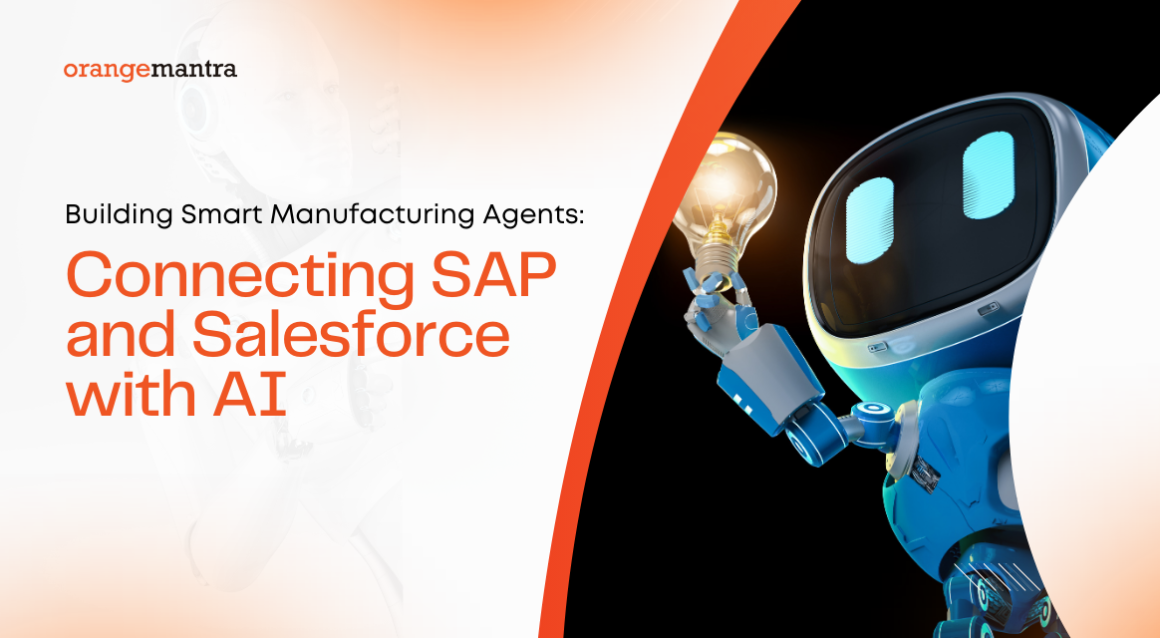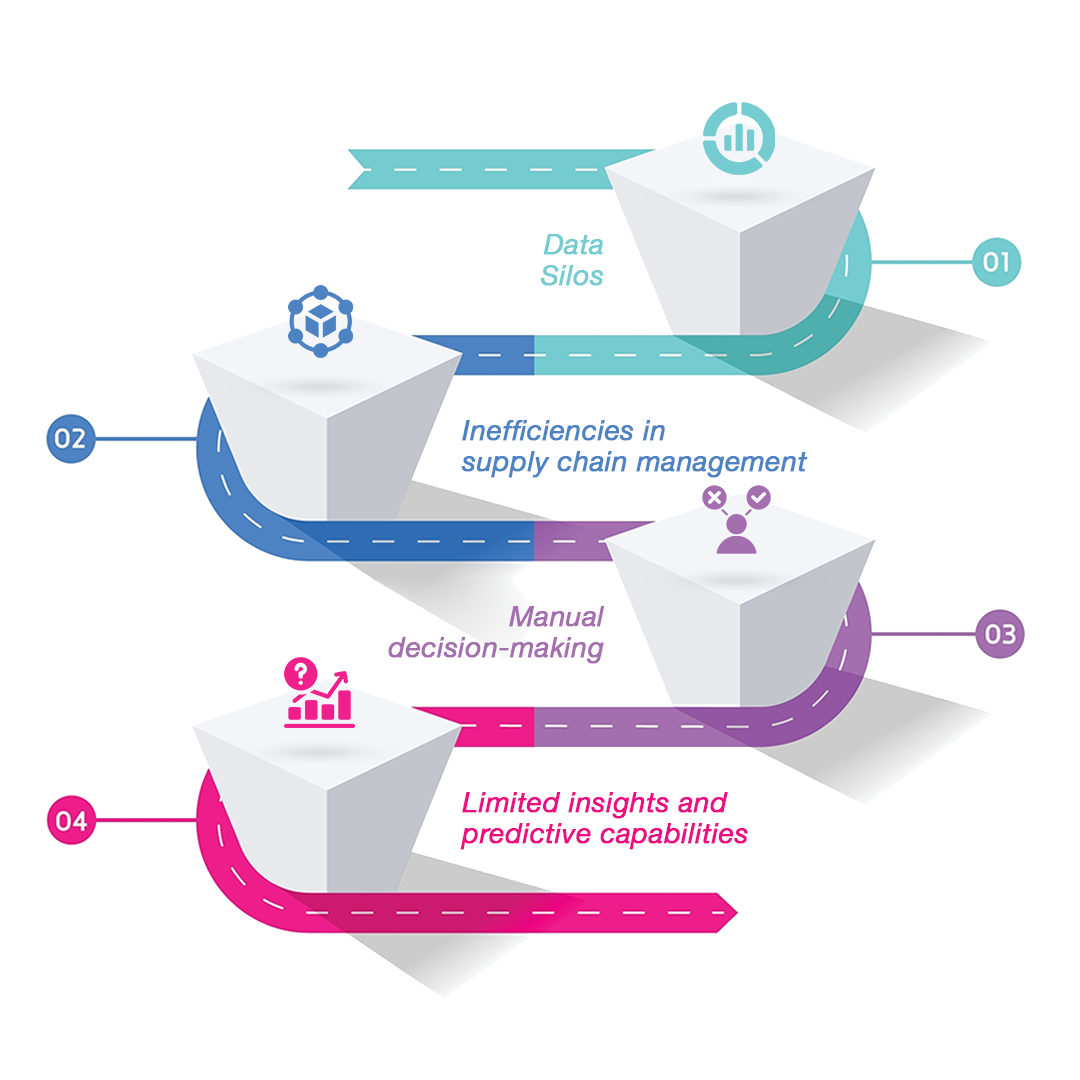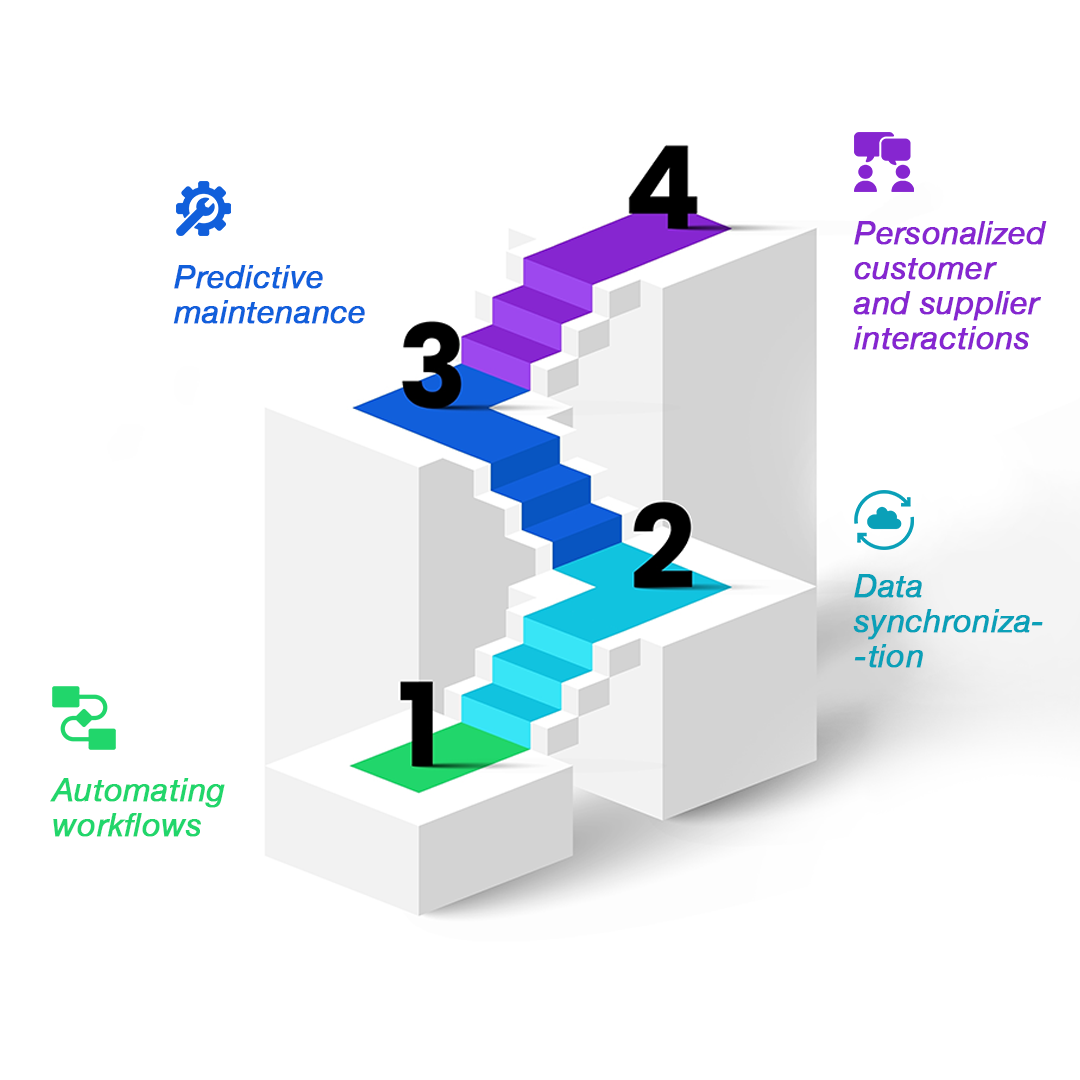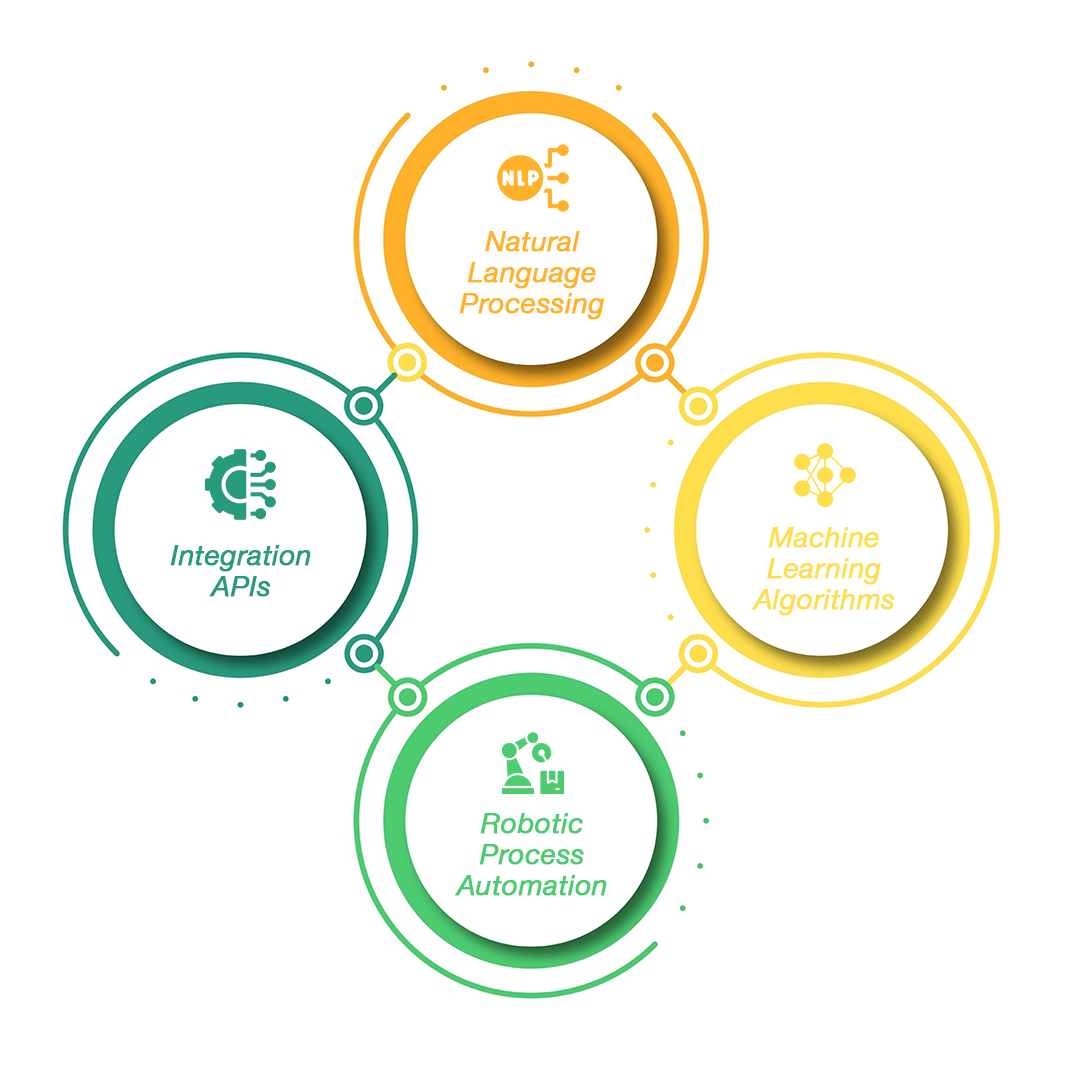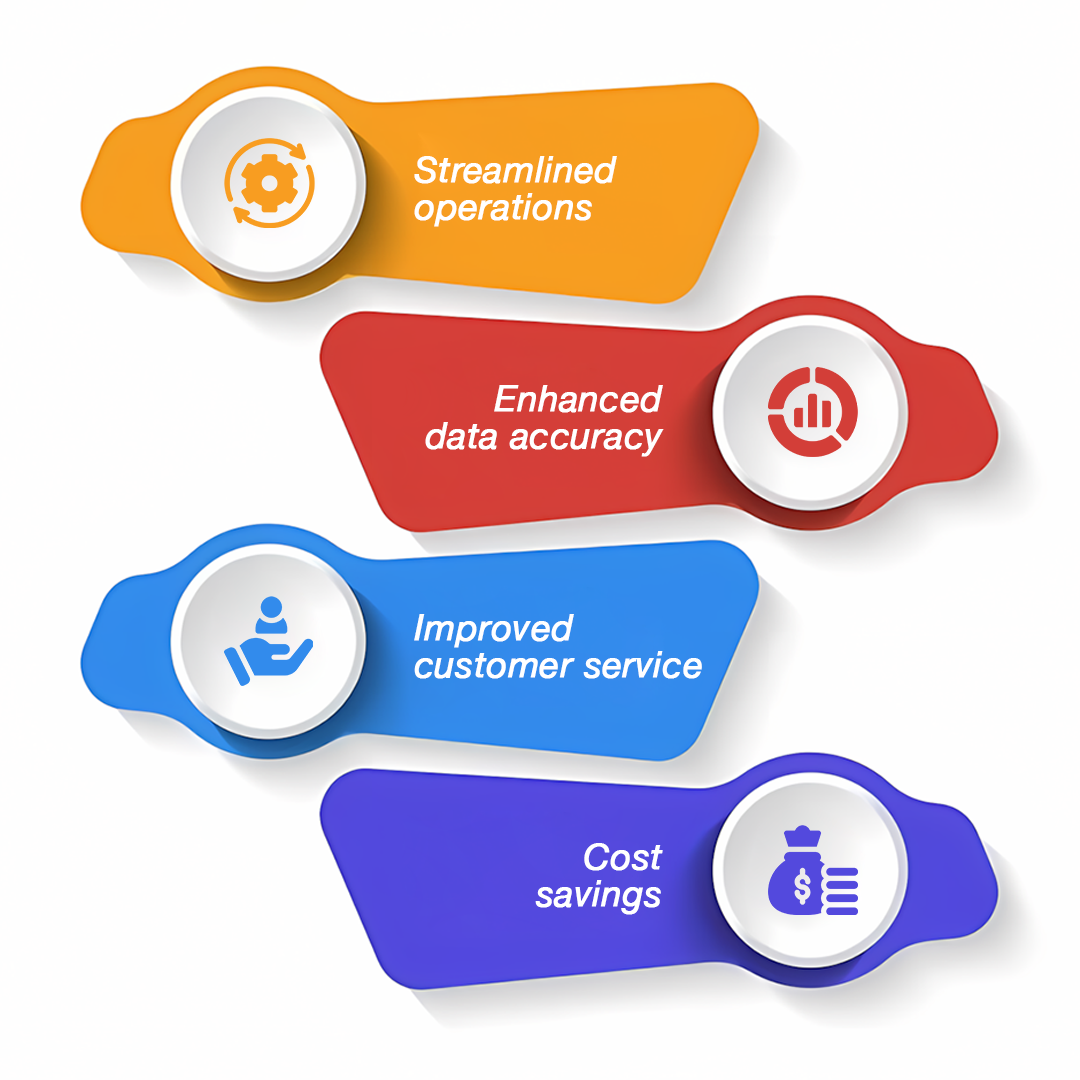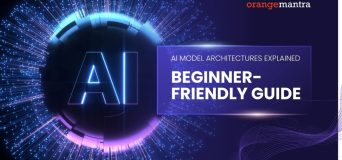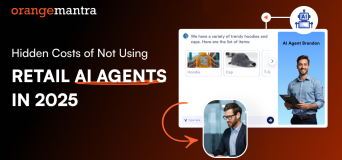Modern manufacturers operate under mounting pressure to optimize their operations because of today’s fast-evolving business environment. The manufacturing processes currently remain limited by their slow performance along with manual operations that cause errors. Industrial innovation receives major changes from AI technology applications in manufacturing operations. With SAP combined to AI and to Salesforce AI enterprises receive automated systems alongside real-time analytic data for better decision support. The joined systems enhance operational effectiveness while enabling competitive separation through innovative procedures. This blog discusses how connecting an AI agent to a manufacturing business through SAP and Salesforce enables important operational changes.
Table of Contents
Challenges in Manufacturing Without AI Integration
Modern manufacturers encounter multiple obstacles which reduce their ability to grow efficiently. The biggest challenge originates from the lack of integration of SAP and Salesforce systems. Without SAP integration and Salesforce integration, manufacturing companies deal with:
- Data silos: Operations insights become limited because disordered information remains confined within distinct database systems.
- Inefficiencies in supply chain management: Without access to real-time data quick decision-making becomes impossible.
- Manual decision-making: Multiples operations need human involvement because this approach decreases response speed while enhancing the potential for mistakes.
- Limited insights and predictive capabilities: Organizations dependent on Artificial Intelligence cannot anticipate equipment maintenance requirements or forecast product demand.
The problems lead to several negative effects which range from production planning to customer service and ultimately damage profitability.
The Role of AI Agents in Manufacturing
Machine learning systems solve these difficulties through automated processes combined with smart decision systems. The application of AI in manufacturing features two primary advantages: it enables process automation coupled with connectivity between diverse systems such as SAP and Salesforce. Here’s how:
- Automating workflows: The automation of continuous tasks including data entry and report generation culminates in time savings and lower human errors.
- Data synchronization: AI integration with SAP enables manufacturing companies to manage data consistency across Salesforce and all additional platforms so information remains live and synchronized in real-time.
- Predictive maintenance: By processing SAP integration data through machine learning algorithms manufacturers can forecast equipment maintenance requirements to prevent system stoppages.
- Personalized customer and supplier interactions: Through Salesforce AI customer data provides personalized expertise that offers individualized marketing content together with personalized ordering solutions.
AI agent implementation enables manufacturing companies to improve operational performance along with production efficiency and smarter organizational decision processes.
Key Components of an AI Agent for Manufacturing
To build an effective AI agent, manufacturers need to focus on the following components:
Natural Language Processing (NLP):
The AI agent obtains the ability to comprehend human language as it operates within all communication channels including email and chat and voice communication. The integration of NLP within Salesforce AI enables businesses to process customer inquiries at higher speed and enhanced operational efficiency.
Machine Learning Algorithms:
The core element of AI exists within these computing systems. Together these algorithms allow the system to absorb previously collected data that advances its operational capabilities over time. Machine learning contributes to SAP integration by improving the management of inventory alongside scheduling machine production.
Robotic Process Automation (RPA):
An AI agent that uses RPA automatically completes order tracking and inventory updates while processing invoices which eliminates human effort to drive enhanced performance.
Integration APIs:
Any AI agent requires smooth pick-and-place integration. Data passes between SAP and AI and Salesforce AI systems through API integration. Such real-time access improves decision capabilities by allowing the AI agent to perform analysis rapidly.
Integrating AI with SAP and Salesforce
The path to success involves complete integration of AI technology with SAP and Salesforce implementations. Here’s how:
SAP with AI:
When ERP systems link with artificial intelligence through SAP integration it enables enhanced analytics and automated functionalities. Better inventory management and improved demand forecasting and enhanced production planning capabilities result from this integration. Business operations can achieve optimized operations and predictive maintenance predictions through the integration of machine learning algorithms into the SAP platform.
Salesforce AI:
Through Salesforce integration AI technology enters into customer relationship management applications. AI-powered data analytics helps organizations both recognize individual customer needs and create individual customer-driven experiences. Through this integration sales teams can concentrate on high-value tasks because the software system performs lead scoring across with customer segmentation and manages follow-up communications jobs automatically.
Seamless Data Exchange:
APIs serve as vital components which unite systems operated by SAP together with Salesforce and AI technology. The system provides real-time data transmission which allows businesses to make rapid informed choices. When customers modify their orders in Salesforce the information synchronizes instantly with SAP enabling correct inventory tracking and scheduling adjustments.
Benefits of AI Integration in Manufacturing
Integrating AI with SAP and Salesforce offers numerous benefits, from operational improvements to customer satisfaction:
- Streamlined operations: The connection of systems through AI integration features automatic workflow processing software that limits manual involvement and enhances operational efficiency and reduces procedural errors.
- Enhanced data accuracy: AI delivers real-time analytics while using prediction methods to maintain accurate up-to-date data that supports organizations to make better decisions.
- Improved customer service: Through Salesforce AI businesses deliver tailored experiences that boost customer satisfaction which generates loyalty.
- Cost savings: The use of automation and predictive maintenance combined with smarter resource management leads to reduced operational costs and machine downtime which together improve profitability.
Steps to Build and Implement an AI Agent
Building and implementing an AI agent for manufacturing involves several key steps:
- Define business objectives and AI use cases: The first step involves defining what problems the AI agent needs to solve including predictive maintenance along with production optimization and customer relationship management tasks.
- Select the right AI technologies and tools: Select technologies which include machine learning algorithms along with NLP toolkit and RPA solution which fulfill organizational business needs.
- Develop and train AI models: AI models receive training using historical data from SAP with AI plus Salesforce AI to keep results precise.
- Integrate the systems with SAP and Salesforce: The integration of APIs enables SAP integration and Salesforce integration to operate with both fluid data movements and instant information refresh.
- Test and refine AI-driven processes: The AI agent requires complete tests to verify fulfillment of business requirements with objective deliverables.
- Deploy and monitor the system: After deployment perform continuous checks of AI system performance to make improvements and handle forthcoming challenges.
Conclusion
AI integration along with SAP and Salesforce applications drives fundamental updates across the manufacturing sector. The combination of automation enables manufacturers to access real-time insights alongside better decision-making capabilities at lower operational expenses. Businesses can excel and exploit their total potential through AI agents that link SAP integration to Salesforce integration. AI development pathways will advance manufacturing operations to new heights of operational excellence delivering rapid throughput and superior operational performance. Your manufacturing operations are ready to reap the advantages of artificial intelligence. The time to innovate is now.
FAQs
What enhancements do AI technologies bring to manufacturing systems?
Artificial intelligence brings automated process workflows while predicting maintenance requirements together with supply chain optimization and instant data-driven decision making capabilities.
Why should manufacturers combine AI technology with SAP and Salesforce?
Integration between SAP and AI and Salesforce AI creates live synchronized data streams to support better scheduling decisions while offering customized customer engagements.
What benefits do manufacturing industry get from the implementation of artificial intelligence?
Through its deployment manufacturers achieve enhanced operational effectiveness along with minimal equipment stoppages and exact data entry along with reduced financial expenses to support streamlined production procedures.
How does AI improve predictive maintenance in manufacturing?
Through SAP data analysis AI performs forecasting of equipment failures to schedule proactive maintenance activities therefore minimizing unanticipated downtime occurrences.
What challenges arise in AI integration with SAP and Salesforce?
AI adoption faces obstacles because of data protection challenges alongside difficulties in user acceptance along with accuracy maintenance demands and requires constant evaluation of SAP-Salesforce integration coordination.
